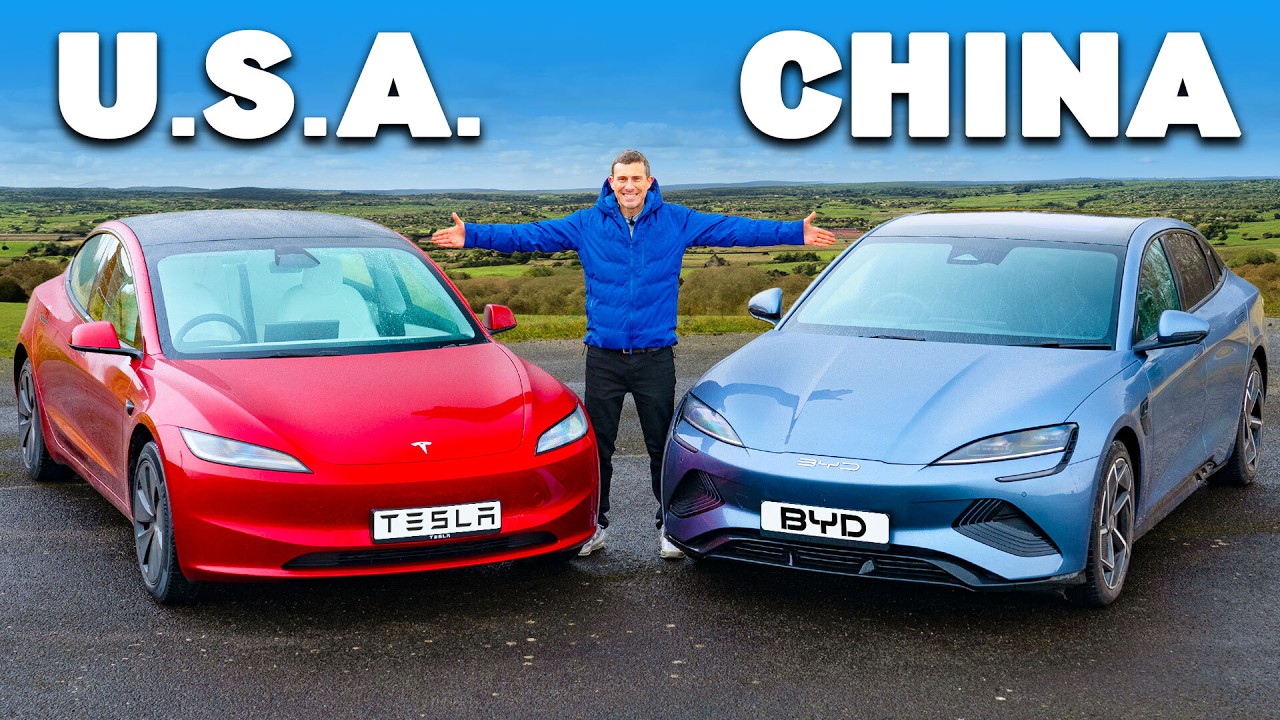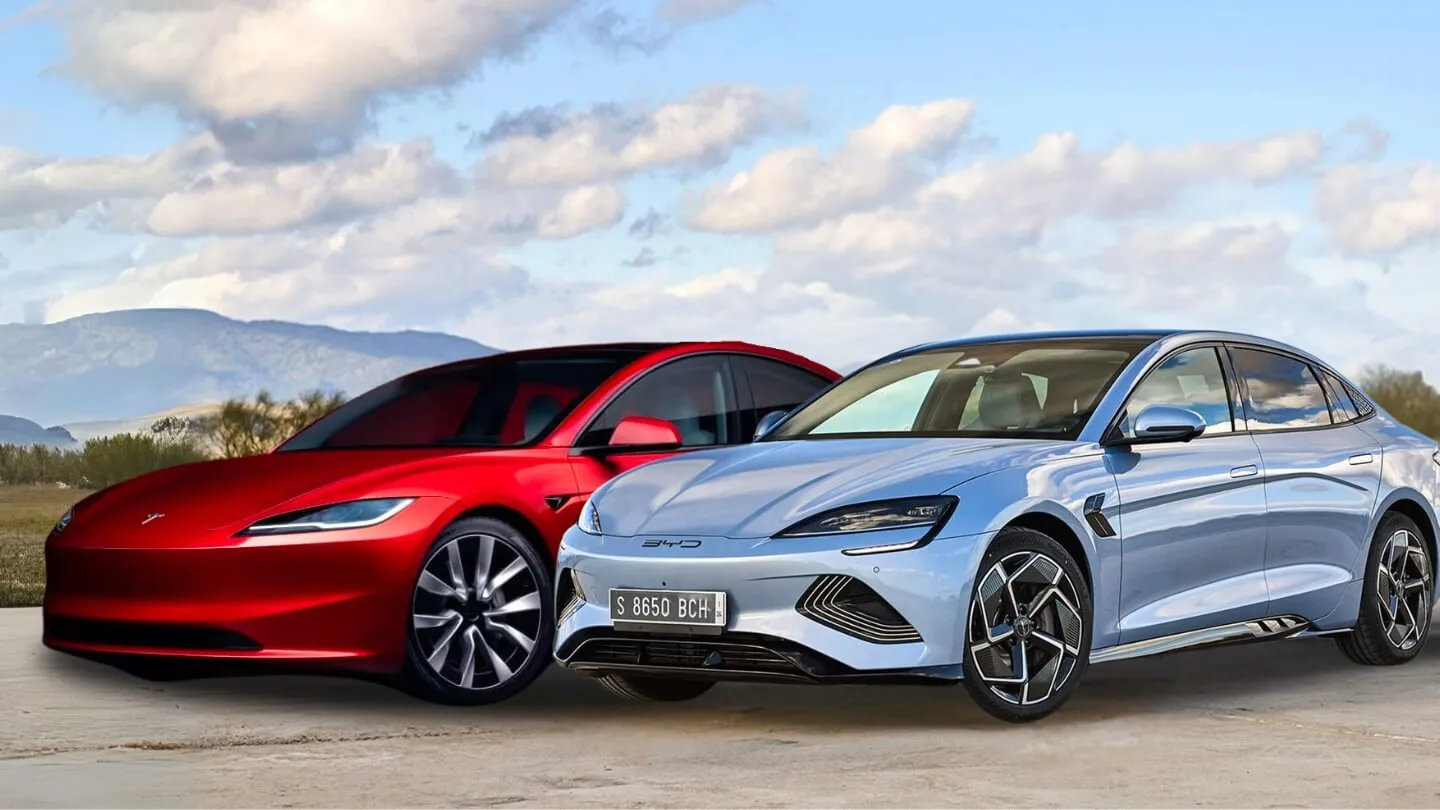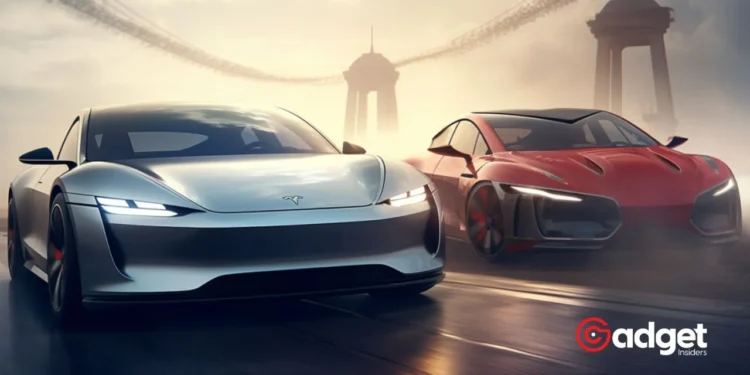In an electrifying twist of fate, BYD Co., a titan in the electric vehicle (EV) realm, has dethroned Tesla Inc. to become the world’s leading EV seller in the final quarter of 2023. This remarkable achievement has positioned BYD as a formidable contender in the global EV market. However, the company’s recent earnings report, which slightly missed analysts’ expectations, resulted in a significant drop in its stock value, illustrating the volatile nature of the EV industry.

A Closer Look at BYD’s Market Dynamics
BYD’s ascent to the top of the EV market was no small feat. In the last three months of 2023, the company not only outperformed its American rival Tesla but also set ambitious targets for the coming year, aiming for a 20% increase in sales. According to Morgan Stanley analysts, the Chinese EV brand’s confidence in maintaining steady profits amid a challenging sector backdrop is nothing short of impressive. The company’s shares witnessed an 11% rise last year, underscoring its resilience and market optimism.
The Chinese giant reported a net income of 30.04 billion yuan ($4.16 billion) for 2023, aligning with its preliminary forecast but falling short of the 30.94 billion yuan average forecast by analysts. This discrepancy prompted a sharp 6.1% fall in BYD’s stock in Hong Kong, marking the company’s most significant selloff in a year. Despite this setback, BYD’s strategic direction and robust sales growth, particularly in China, continue to position it as an industry pacesetter.
@IBD_ECarson been working hard over the weekend to update the ongoing story of #BYD vs #Tesla https://t.co/D2SexZHFOw
— Adam Warden 🌐 (@Adam_and_EVs) March 24, 2024
Navigating the Competitive Landscape
BYD’s journey is emblematic of the broader challenges and opportunities within the EV sector. The company’s 20% growth target for 2024 implies an ambitious goal of 3.6 million vehicle sales, with a strong focus on expanding its international footprint. BYD’s record-breaking sales of 3.02 million electric and hybrid vehicles in the last year, including a significant push in the final quarter, underscore its dominance in the market.
However, the path forward is not without its hurdles. BYD faces intense competition from both established players and emerging disruptors in the EV space. The company’s recent foray into the luxury EV market and its aggressive pricing strategies are clear indicators of its determination to not just compete but lead across diverse market segments.
The Price War Intensifies
The EV industry is witnessing a fierce price war, with BYD at the forefront of making electric mobility more accessible than ever. The company’s strategy of offering significant discounts across its range, coupled with the launch of its high-performance electric supercar, signals a bold move to capture a broader consumer base. This aggressive pricing tactic, however, raises concerns about profit margins and the sustainable growth of the EV market amidst intensifying competition.

The Road Ahead
As BYD navigates the complexities of the global EV market, its journey offers valuable insights into the industry’s evolving dynamics. The company’s ability to outperform Tesla, coupled with its ambitious growth targets and strategic market positioning, sets the stage for an intriguing chapter in the race for electric dominance.
While the recent earnings miss serves as a reminder of the challenges inherent in the EV industry, BYD’s strategic investments in technology and its comprehensive approach to vehicle manufacturing underscore its potential for long-term success. As the electric era continues to unfold, BYD’s trajectory will undoubtedly be a key barometer for the health and direction of the EV market worldwide.
In the rapidly evolving landscape of electric mobility, BYD’s story is a testament to the transformative power of innovation and strategic foresight. As the company charts its course through the highs and lows of the market, its journey remains a beacon for the future of electric vehicles, signaling a new era where electricity promises to be cheaper than oil.










